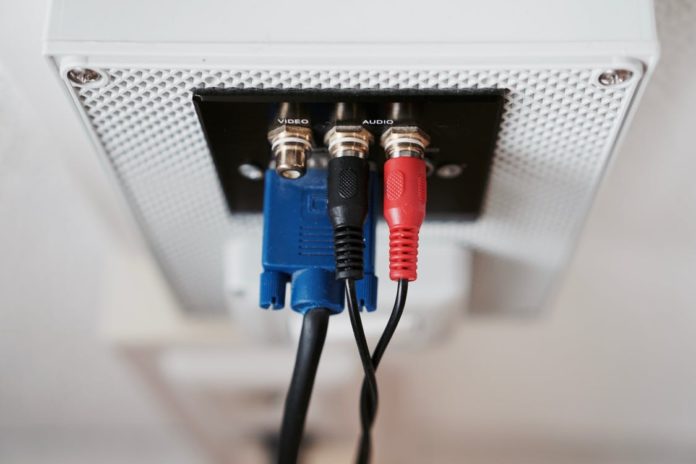Nowadays, all kinds of banking exams ask questions on Input-Output. Also, Input Output questions for SBI PO often look difficult and consume a lot of your valuable time in solving. Thus, in any competitive examination, it is vital, that you solve questions in as less amount of time as possible.
In this regard, learning a few tricks to solve Input Output questions for SBI PO will significantly reduce the time needed to solve these questions. Also Practice Input Output questions in Previous year Papers of SBI PO to ace this section in this years SBI PO exam. As the SBI PO 2018 exam is approaching soon we recommend you take a look at Cracku’s SBI PO national level mock test series and answer all Input Output questions to gauge your performance in this section.
Unlimited Banking Tests – Rs. 499
Let us begin by getting to know what Input Output reasoning questions for SBI PO are.
Contents
WHAT ARE INPUT OUTPUT QUESTIONS FOR SBI PO
Input Output reasoning questions for SBI PO are a type of questions where you are given a word and number arrangement. Consequently, an operation is performed on the given word and number arrangement. With each subsequent operation, the word and number arrangement changes. This operation is repeated until a desired final arrangement is obtained.
In Input Output questions for SBI PO, a candidate has to identify the hidden pattern in the rearrangement and apply it to the questions asked. Let us now look at a few examples of Input Output reasoning questions for SBI PO.
EXAMPLE
A word arrangement machine when given an input of words rearranges them following a particular rule in each step.
The following illustrates input and steps rearrangement.
INPUT: Bird Early Gets The Worm
STEP-1: Worm Bird Early Gets The
STEP-2: Worm The Bird Early Gets
STEP-3: Worm The Gets Bird Early
STEP-4: Worm The Gets Early Bird
This is the final arrangement and STEP IV is the last step for the given input.
Now let us analyze and understand what happened in the rearrangement. On careful observation we can notice the following:
- The rearrangement took place from left to right
- The rearrangement took place one word at a time
- Also, the rearrangement took place on the basis of reverse alphabetical order
Now in the same pattern let us find the output of a different input.
INPUT: Actions Speak Louder Than Words
OUTPUT: Words Than Speak Louder Actions
This was a simple example involving only words. But Input Output reasoning Questions for SBI PO contain mainly a mix of words and numbers. Let us now look at the types of questions.
Download SBI Po 2018 Syllabus PDF
TYPES OF INPUT OUTPUT QUESTIONS FOR SBI PO
1. Rearrangement based on ordering
This type of questions has a mix of words and numbers. During the rearrangement, words are arranged alphabetically or reverse alphabetically. In addition, numbers are arranged either in the increasing or in the decreasing order.
Both words and numbers are arranged simultaneously in each step. Consequently, the rearrangement can happen from the left side or the right side of the sentence. Sometimes it can also happen simultaneously from both the ends. Consequently, in this type of rearrangement, a pair of words and numbers are shifted at a time, without changing the order of the remaining words and numbers.
Let us look at an example of this type of rearrangement.
EXAMPLE
INPUT: better 65 never than 87 36 52 late
STEP-1: 36 better 65 never 87 52 late than
STEP-2: 36 52 better 65 87 late never than
STEP-3: 36 52 65 better 87 late never than
STEP-4: 36 52 65 87 better late never than
Therefore step 4 is the final step of the rearrangement.
Now let us analyze and understand what happened in the rearrangement. On careful observation we can notice the following:
- The rearrangement took place simultaneously from both left and right ends.
- One number and one word got rearranged at a time
- The numbers are arranged from the left in increasing order
- The words are arranged from the right in reverse alphabetical order
2. Rearrangement based on Interchanging the Positions of Words and Numbers
In this type of rearrangement, few positions are selected. and the positions of only those words or numbers are exchanged. The positions of all other words and numbers remain unchanged.
Let us look at an example of this type of rearrangement.
EXAMPLE
INPUT: 97 cat indigo 52 elephant 28 honey gold 64 15
STEP-1: 15 cat indigo 52 elephant 28 honey gold 64 97
STEP-2: 15 cat 28 52 elephant indigo honey gold 64 97
STEP-3: 15 cat 28 elephant 52 indigo honey gold 64 97
STEP-4: 15 cat 28 elephant 52 gold honey indigo 64 97
STEP-5: 15 cat 28 elephant 52 gold 64 indigo honey 97
STEP-6: 15 cat 28 elephant 52 gold 64 honey indigo 97
STEP-7: 15 cat 28 elephant 52 gold 64 honey 97 indigo
Therefore step 7 is the final step of the given input. The words underlined in each step indicate the words interchanged in the subsequent step.
Now let us analyze and understand what happened in the rearrangement. On careful observation we can notice the following:
- The rearrangement is done from the left end
- One number/word was interchanged in each step
- The numbers are interchanged such that the result is an increasing order
- The alphabets are interchanged such that the result is an alphabetical order
3. Rearrangement based on mathematical operations
In this type of Input Output reasoning questions for SBI PO, some mathematical operation like adding the digits of a number or squaring a number is performed on all the numbers.
Let us look at an example of this type of rearrangement.
EXAMPLE
INPUT: 45 56 24 97 68 32
STEP-1: 9 56 24 97 68 5
STEP-2: 9 11 24 97 14 5
STEP-3: 9 11 6 16 14 5
Therefore step 3 is the final step of the given input.
Now let us analyze and understand what happened in the rearrangement. On careful observation we can notice the following:
- The rearrangement took place from both left and right ends
- In each step, an operation was performed on two numbers
- The operation performed is that the number is replaced by its sum of digits
Download SBI PO Mains Syllabus 2018 PDF
Take Free Mock Tests for Banking exams
SOLVED EXAMPLES OF INPUT OUTPUT QUESTIONS FOR SBI PO
EXAMPLE
INPUT: 36 post horn cheat 42 67 75 steal road
STEP-1: 75 36 post horn cheat 42 67 steal road
STEP-2: 75 36 post horn cheat 42 67 road steal
STEP-3: 75 67 36 post horn cheat 42 road steal
STEP-4: 75 67 36 horn cheat 42 post road steal
STEP-5: 75 67 42 36 horn cheat post road steal
STEP-6: 75 67 42 36 cheat horn post road steal
Following the above pattern, how many steps will be required to rearrange completely the below-given input?
36 out sorrow endure 86 57 amount 42
To solve this question, let us first analyze and understand what happened in the rearrangement. On careful observation we can notice the following:
- The rearrangement took place from both left and right ends
- In odd numbered steps numbers are arranged in decreasing order from the left
- In even numbered steps words are arranged from the right in reverse alphabetical order
Let us now perform the same operation on the given input.
INPUT: 36 out sorrow endure 86 57 amount 42
STEP-1: 86 36 out sorrow endure 57 amount 42
STEP-2: 86 36 out endure 57 amount 42 sorrow
STEP-3: 86 57 36 out endure amount 42 sorrow
STEP-4: 86 57 36 endure amount 42 out sorrow
STEP-5: 86 57 42 36 endure amount out sorrow
STEP-6: 86 57 42 36 amount endure out sorrow
Step 6 is the final step as we have completed the rearrangement.
Therefore 6 steps are required to arrive at the final output.
Download SBI PO Free Preparation App
Daily Current Affairs – Today current Affairs PDF
CONCLUSION
Thus we have now arrived at a structured approach of how to solve Input Output questions for SBI PO. The steps to be followed in our approach are to analyze the steps in detail and arrive at the pattern followed in each of the steps. Following such a structured approach will save you a lot of time in competitive exams. In this way, you can outscore your competitors in the amount of stipulated time available.





![How To Manage Time In CAT Exam? [Section-wise Tips] How to manage time in CAT exam ?](https://cracku.in/blog/wp-content/uploads/2018/09/fig-03-09-2018_10-54-46-218x150.jpg)